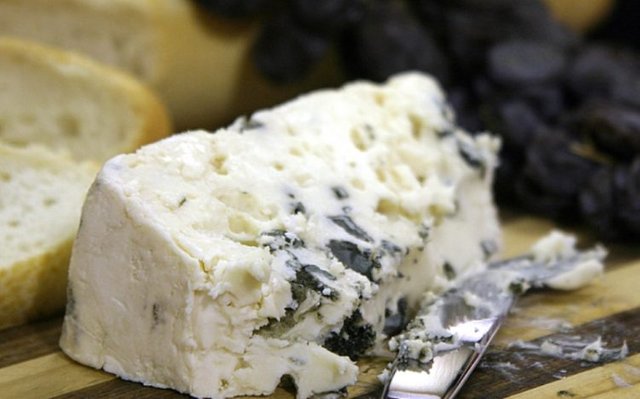New Study Reveals Eating Cheese Promotes Longer Life and Faster Metabolism

Cheese is a very popular ingredient in Western cuisine. Commonly found in many traditional foods in the Western world, the average American for example, is said to consume around 30 pounds of cheese per year.
In Europe, France is considered to be the country which consumes the most cheese, with the average French person consuming 23.9kg of cheese per year. In other words, cheese is an important ingredient in French cuisine, and in some cases, a delicacy.
For those who like cheese, there is some good news on the horizon, however. A new study has suggested a link between cheese consumption and a longer and healthier life.
The study, conducted by researchers from Aarhus University in Denmark, has been accepted into the Journal of Agricultural and Food Chemistry. According to the study, consuming cheese could be a key factor to a faster metabolism and reduction in obesity.
The researchers said they investigated the reasons behind why the French tend to lead longer and healthier lives while consuming diets high in saturated fats. In the past, there have been many explanations of this phenomenon, known as the 'French Paradox'. The French paradox is a catchphrase, first used in the late 1980s, summarizing the apparently paradoxical epidemiological observation that French people have a relatively low incidence of coronary heart disease while having a diet relatively rich in saturated fats.
However, this new Danish research pointed to a simpler answer. The study suggested that fermented dairy products, such as cheese, could contribute to longevity and health. The French enjoy a low incidence of coronary heart disease and an average life expectancy of 82 years. At the same time, they consume up to 23.9kg of cheese each year.
The researchers compared this statistic to the British, who eat 11.6kg of cheese each year, but suffer from twice the levels of cardiovascular disease, leaving them with a life expectancy of 81 years.
Furthermore, the researchers compared urine and fecal samples from 15 men whose diets either contained cheese or milk, or ate a diet with butter but no other dairy products. They found that those who ate cheese had higher levels of butyric acid, a compound that has been linked to obesity reduction and higher metabolism. The higher butyrate levels were also linked to a reduction in cholesterol.
A food researcher at Aarhus University who took part in the study, Hanne Bertram, said their study "suggests a role for gut microbes and further shores up the connection between cheese and the French paradox."
This isn't the first time a study is shedding light on the health benefits of cheese. In 2012, a study revealed that a specific cheese, known as Roquefort cheese, guards against cardiovascular disease, leading to good health and longevity.
Two doctors who conducted the study, Dr Ivan Petyaev and Dr Yuriy Bashmakov, said the cheese is known for its mould and green veins, and that it had specific anti-inflammatory properties that contribute to the occurrence of the French paradox.
“Observations indicate that consumption of red wine alone cannot explain the paradox and perhaps some other constituents of the typical French diet could be responsible for reduced cardiovascular mortality. We hypothesize that cheese consumption, especially of moulded varieties, may contribute to the occurrence of the French paradox. Moulded cheeses, including Roquefort, may be even more favorable to cardiovascular health,” the study said.
Earlier this year, we published an interesting study that also suggested cheese is just as addictive as hard drugs. The study was done by the author Alanna Ketler for Collective-Evolution. According to the study, dairy products actually contain a chemical similar to morphine. The study said a protein known as casein is present in all mammals, including humans and cows.
When humans eat dairy, and it begins to digest, the casein releases opiates that are known as casomorphins. Casomorphins are said to be similar to morphine, and belong to the opioid family.
Ketler argued in the study that when we consider the purpose of breast milk from mothers, it is to provide nourishment for rapidly growing infants and to establish a strong connection between mother and child. This, she said, makes the purpose of casomorphins very clear. It causes addiction.
The majority of cheese consumed on a regular basis is primarily made from cow’s milk. Ketler wrote how cheese produced from cow’s milk has at least 10 times the amount of casomorphins, compared to that of humans (breast milk).
According to Ketler, in the process of converting milk into cheese, about 10 pounds of milk is required to make 1 pound of cheese, which means that the presence of casomorphins is highly concentrated in cheese derived from cows.